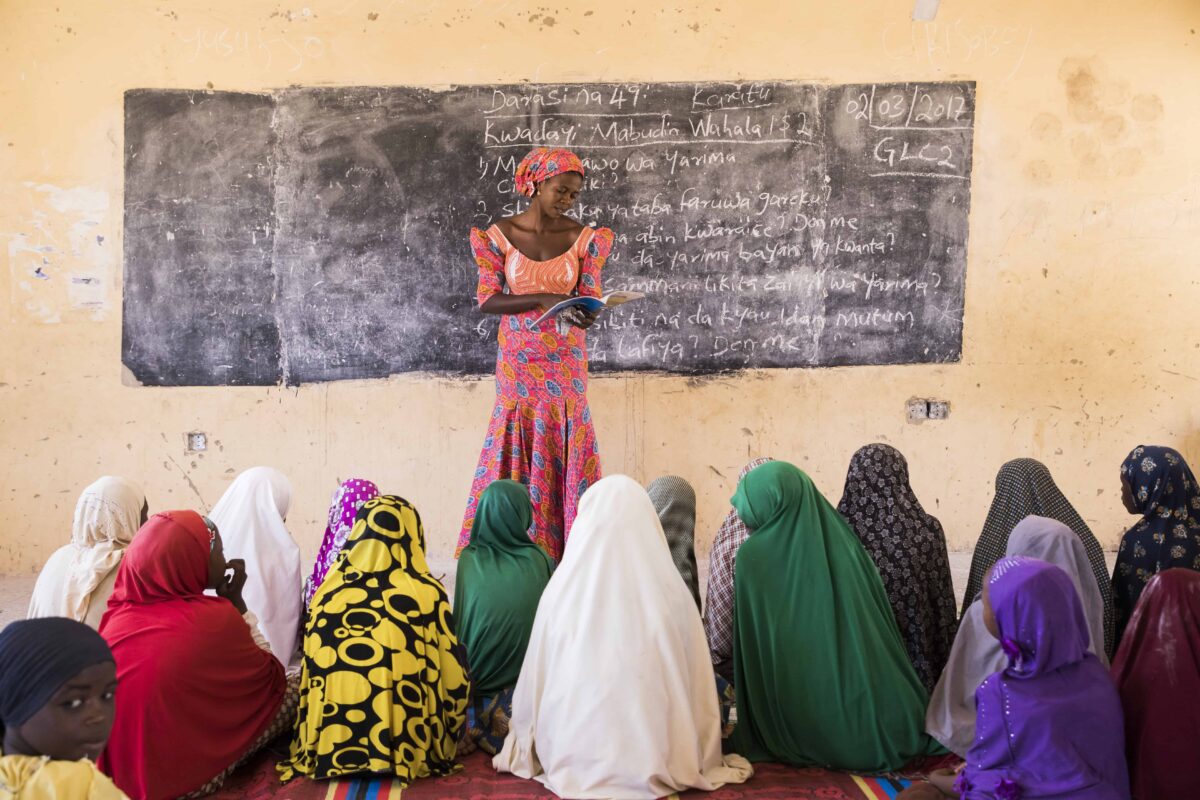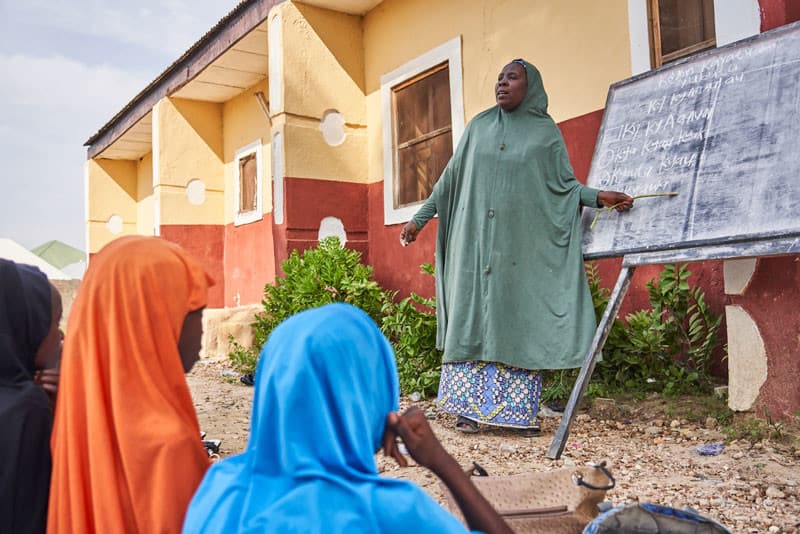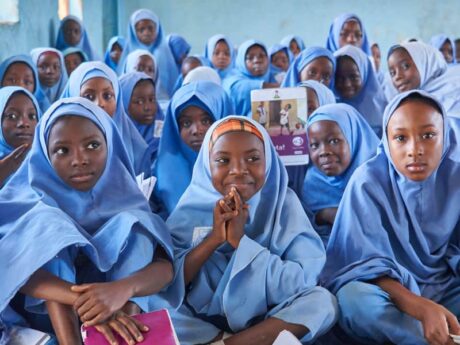Sentado en un banco de madera en la primera fila de su grado. 3 clase y levantando la mano con entusiasmo para responder a las preguntas de su profesor, 10-Yazidu Sahabi, de un año, demuestra su pasión por aprender.
“Debes estudiar mucho, y hazlo con todo tu corazón," dice Yazidu, ¿Quién sueña con ser médico?.
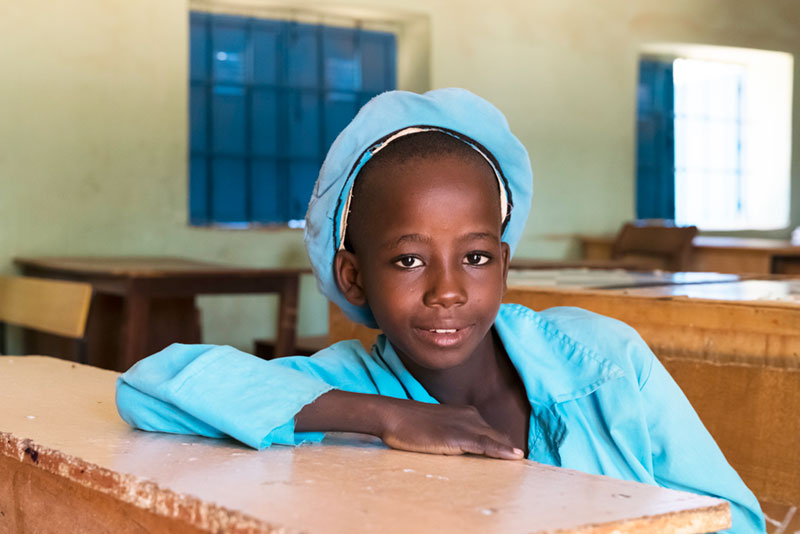
Zaharau Abdullahi Yabo, maestro de yazidu, dice que es el primero en llegar a su salón de clases cada mañana y que las habilidades de lectura y escritura que está recibiendo en la escuela lo encaminarán hacia el éxito.
“Si un estudiante no obtiene una base sólida en la escuela primaria, Le resulta difícil lograr lo que quiere ser más adelante en la vida.,” explica Yabo.
Yazidu es uno de los casi 200,000 Jóvenes estudiantes de Sokoto mejoran sus habilidades de lectura y escritura a través de un programa de lectura para los primeros grados llamado leamos! (leamos! En hausa).
Financiado por el A NOSOTROS. Agencia para el Desarrollo Internacional, el Iniciativa de Educación del Norte Plus El proyecto se está implementando en escuelas formales y no formales de los estados de Sokoto y Bauchi en Nigeria., con el objetivo de mejorar las habilidades lectoras durante más de 2 millones de alumnos de primaria.
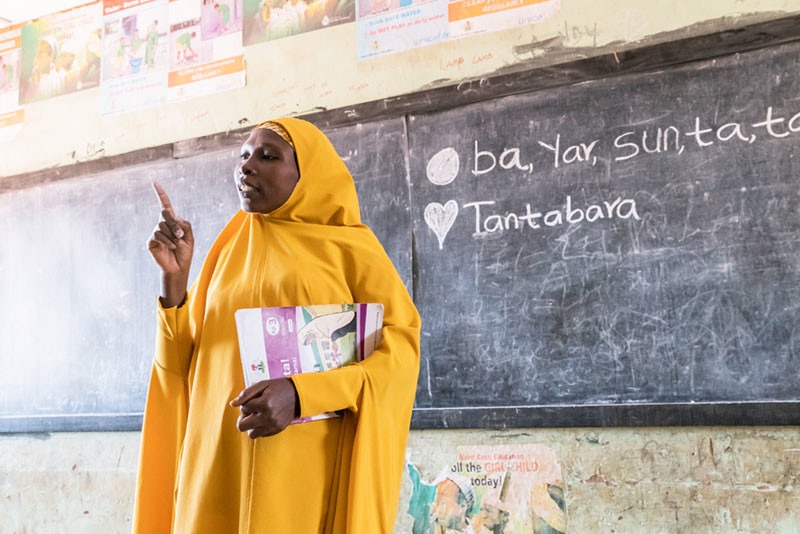
En asociación con más de 100 desarrolladores de currículos locales e internacionales, lingüistas, maestros de primaria y otros educadores, El proyecto ha desarrollado libros para estudiantes y guías para profesores para cada uno de los tres trimestres del año escolar nigeriano..
El leamos! los libros equipan el grado 1 a 3 estudiantes a leer en el idioma local de Hausa, y el leamos! los libros preparan el grado 2 a 3 los estudiantes harán la transición de la lectura en hausa al inglés.
Colectivamente, Los libros contienen más de 750 lecciones, cada uno de ellos brinda a los niños oportunidades para practicar la lectura, escuchando y escribiendo. Las ilustraciones e historias incluidas en los libros comunican normas y valores culturales locales.. Además, Las preguntas guía que complementan cada lección alientan a los lectores de los primeros grados a pensar críticamente..
Despertando entusiasmo por aprender
En el estado de Sokoto, una región cálida y árida de Savannah en el noroeste de Nigeria que limita con Níger, Educar a los niños en las zonas rurales ha sido un desafío..
Las familias campesinas priorizan trabajar en el campo antes que recibir educación, Las aulas se han visto afectadas por la falta de libros de texto y los profesores no están adecuadamente capacitados ni orientados.. Con estos desafíos educativos, profesores y estudiantes faltan regularmente a la escuela.
Calificación 3 el maestro Yabo dice que a pesar de estos obstáculos, Las perspectivas están cambiando y un entusiasmo renovado por el aprendizaje está aumentando en las comunidades remotas.. La Iniciativa de Educación del Norte Plus ha logrado más de 860,000 libros de texto a estudiantes y profesores en casi 900 escuelas primarias en el estado de Sokoto.
“Los niños vienen a la escuela más que antes gracias a los libros que se les distribuyen," dice Yabo, quien ha estado enseñando en la escuela primaria modelo Nizzamiyya Islamiyya durante nueve años e incluso asistió a la escuela cuando era niño..
Antes del leamos! los libros fueron entregados a la escuela, Yabo dice que los profesores usaban libros de texto muy viejos y obsoletos. Sin embargo, Los nuevos materiales de aprendizaje y enseñanza están abriendo nuevas vías para que los estudiantes reciban una educación de calidad..
“Incluso aquellos que no están matriculados en la escuela se sienten atraídos por estos libros y les piden a sus padres que los traigan a la escuela para poder conseguirlos.," ella explica.
En el segundo año de un proyecto de cinco años, Northern Education Initiative Plus ha distribuido más de 1.9 millones de libros de texto de lectura para estudiantes y profesores en los estados de Bauchi y Sokoto, opening new doors for children in northern Nigeria to improve their basic literacy and math skills.
For 10-year-old Yazidu, el leamos! lessons are enhancing his motivation to learn in the classroom.
“When we learn leamos! my teacher teaches us new songs, she shows us papers with drawings of different objects and their names. We identify them together. She reads a story, asks us questions and we look in our books together," él dice.
For Abubakar Sahabi, Yazidu’s father, receiving a quality education is essential for his youngest son to reach his goals.
“When I watched him read I realized that the many hours he spent in school were worth the while. My decision to educate him is a good investment," dice Abubakar, who is a retired teacher and has 18 niños.
After witnessing his son’s motivation to learn Hausa and English, Abubakar instaló una pizarra en la cocina de su casa para practicar el leamos! lecciones juntos como familia.
“Yazidu se está desempeñando mejor que su hermano mayor, que está en grado 4 debido a los materiales del programa y la instrucción," explica Abubakar. “Le ha enseñado a su hermano e incluso a otros estudiantes de secundaria lo que está aprendiendo en la escuela”.
Afrontar juntos un estado de emergencia
Faruk Shehu, Secretario Ejecutivo de la Junta de Educación Básica Universal del Estado de Sokoto, dice que el sector educativo en el norte de Nigeria ha necesitado desesperadamente mejoras y que el gobierno de Sokoto está tomando la iniciativa para superar rápidamente los desafíos.
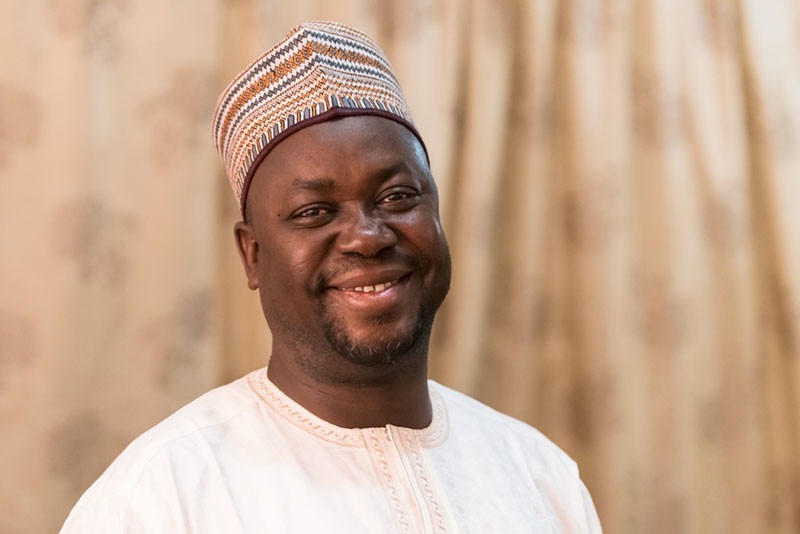
“El gobierno de Sokoto ha declarado estado de emergencia educativa después de sentarse y darse cuenta de los principales problemas de la educación en el norte de Nigeria," explica Shehu.
Acerca de 80 porcentaje de niños en grados 2 y 3 en los estados de Bauchi y Sokoto no podían leer ni una sola palabra en hausa o inglés, según un 2016 Evaluación de referencia de lectura en los primeros grados realizada por el proyecto Northern Education Initiative Plus.
Con métodos de instrucción obsoletos y formación inadecuada de los docentes., Los estudiantes no tienen el apoyo necesario para tener éxito en el aula..
Shehu dice que se han establecido dos grupos principales, el Consejo Político de Educación y los Comités Técnicos, para acelerar las actividades educativas relacionadas con el estado de emergencia.. Los comités incluyen directores., profesores, administradores escolares, sindicatos y organizaciones internacionales no gubernamentales, entre otros involucrados en el sector.
A Shehu, la asociación está evolucionando y cambiando y “todos se están uniendo” para resolver los principales desafíos de la educación en Sokoto..
“Una sociedad sin educación no sirve para ser sociedad,"dice Shehu, quien ha formado parte del sector educativo durante toda su carrera. “Si lo miras moralmente, económica y socialmente, La educación moldea la vida de cada individuo”.
El Iniciativa de Educación del Norte Plus El programa genera apropiación entre los federales., Autoridades educativas de los gobiernos estatales y locales y trabaja en estrecha colaboración con ellas para garantizar el compromiso con la instrucción de lectura de calidad en los primeros grados y un mayor acceso a la educación..
Yusuf Alhassan Muhammad, Coordinador de lectura del gobierno local para Northern Education Initiative Plus, dice el gobierno local, Las comunidades y los padres han aceptado el programa de lectura de primeros grados y leamos! Materiales educativos a través de la promoción continua y la comunicación abierta..
Reuniones frecuentes con líderes tradicionales y religiosos., así como padres y administradores escolares, influyó en los tomadores de decisiones clave y la comunidad adoptó el nuevo programa de lectura.
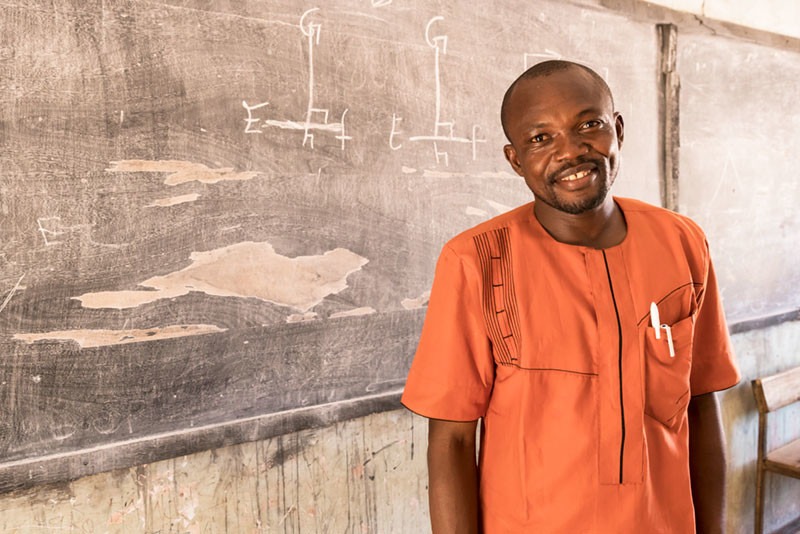
Muhammed dice que el gobierno local ha mostrado propiedad en el proyecto involucrando continuamente a toda la comunidad y cubriendo la compensación por 115 personal del gobierno que recibió capacitación docente y finalmente fue colocado en una escuela primaria.
Con la mirada puesta en la sostenibilidad, El gobierno también proporcionó un vehículo para entregar los materiales de aprendizaje y enseñanza a 77 difícil de alcanzar, comunidades rurales, dice Mahoma.
A través del proyecto, más que 9,000 Los educadores han sido equipados con habilidades prácticas para enseñar el plan de estudios de lectura de los primeros grados..
“El sistema educativo no puede ser atendido por individuos independientes de los padres," dice Mahoma, quién es responsable de las actividades de lectura del proyecto en las escuelas formales del gobierno local de Tangaza en Sokoto. "Los maestros son los padres en la escuela y, igualmente, los padres son los maestros en casa".
Enseñanza creativa, aprendizaje activo
Yabo ha experimentado de primera mano los desafíos de enseñar a jóvenes estudiantes con un plan de estudios de alfabetización inadecuado y apoyo limitado.. En su carrera como profesora en Sokoto., ella no había recibido capacitación en el servicio.
Yabo dice que carecía de materiales de enseñanza y aprendizaje de calidad y tenía orientación limitada sobre la planificación de lecciones.. Por ejemplo, ella entraba a un salón de clases y enseñaba a sus alumnos durante varias horas sin invitarlos a participar activamente en las lecciones.
“Las capacitaciones cambiaron toda mi perspectiva sobre la enseñanza.. Tengo guías docentes con lecciones adecuadamente estructuradas.. Involucro a mis alumnos durante toda la lección.. Escucho sus voces tanto como ellos escuchan la mía.. es trabajo en equipo," dice Yabo.
Yabo dice que desde que su escuela adoptó las intervenciones de la Iniciativa de Educación del Norte Plus, La cultura de la lectura en Nizzamiyya Islamiyya Model Primary ha mejorado y el nuevo enfoque de aprendizaje y enseñanza está creando un ambiente más positivo..
“Los profesores capacitados están entusiasmados con la enseñanza en clase porque encuentran formas creativas de expresarse.," ella explica. "Los niños quieren venir más a la escuela porque es divertido y a los padres les encantan los libros de texto".
También dice que las historias en el leamos! Los libros de texto han cambiado el comportamiento de los niños..
“Los niños han escuchado y leído cuentos que enseñan buena higiene, por lo que ahora se bañan y visten uniformes elegantes para ir a la escuela.. Hay historias que enseñan buenas costumbres y el valor de la educación para que los niños ahora entiendan que la asistencia diaria a la escuela es importante.," ella dice.
Alegría del Plessis, Especialista senior en lectura para Northern Education Initiative Plus, reconoce la importancia de la lengua materna y las ilustraciones de cuentos en los libros de texto para mejorar la alfabetización de todos los niños, especialmente los que viven en el remoto norte de Nigeria..
“Hemos visto cómo la comunidad está muy contenta con las ilustraciones y cómo representan la cultura.," ella dice. “Antes de que se imprimieran los materiales, Los probamos en comunidades para asegurarnos de que fueran social y culturalmente relevantes y aceptables”.
El experto en lectura dice que las ilustraciones fueron diseñadas para reflejar fuertes, curioso, niñas y niños animados y activos, especialmente las chicas, y las imágenes muestran a los niños como iguales.
Las ilustraciones y las historias alientan a estudiantes como Yazidu a convertirse en pensadores críticos y a cuestionar, predecir, inferir y analizar: habilidades importantes necesarias para tener éxito en la escuela y, finalmente, en una carrera próspera.
“¿Cómo sabemos que los estudiantes de primer grado en Sokoto están mejorando sus habilidades de lectura y disfrutando aprendiendo nuevas lecciones??" preguntó du Plessis. "Vemos el rendimiento estudiantil acelerado en las aulas y un nuevo entusiasmo y aceptación de la educación por parte de los padres y las comunidades todos los días".
